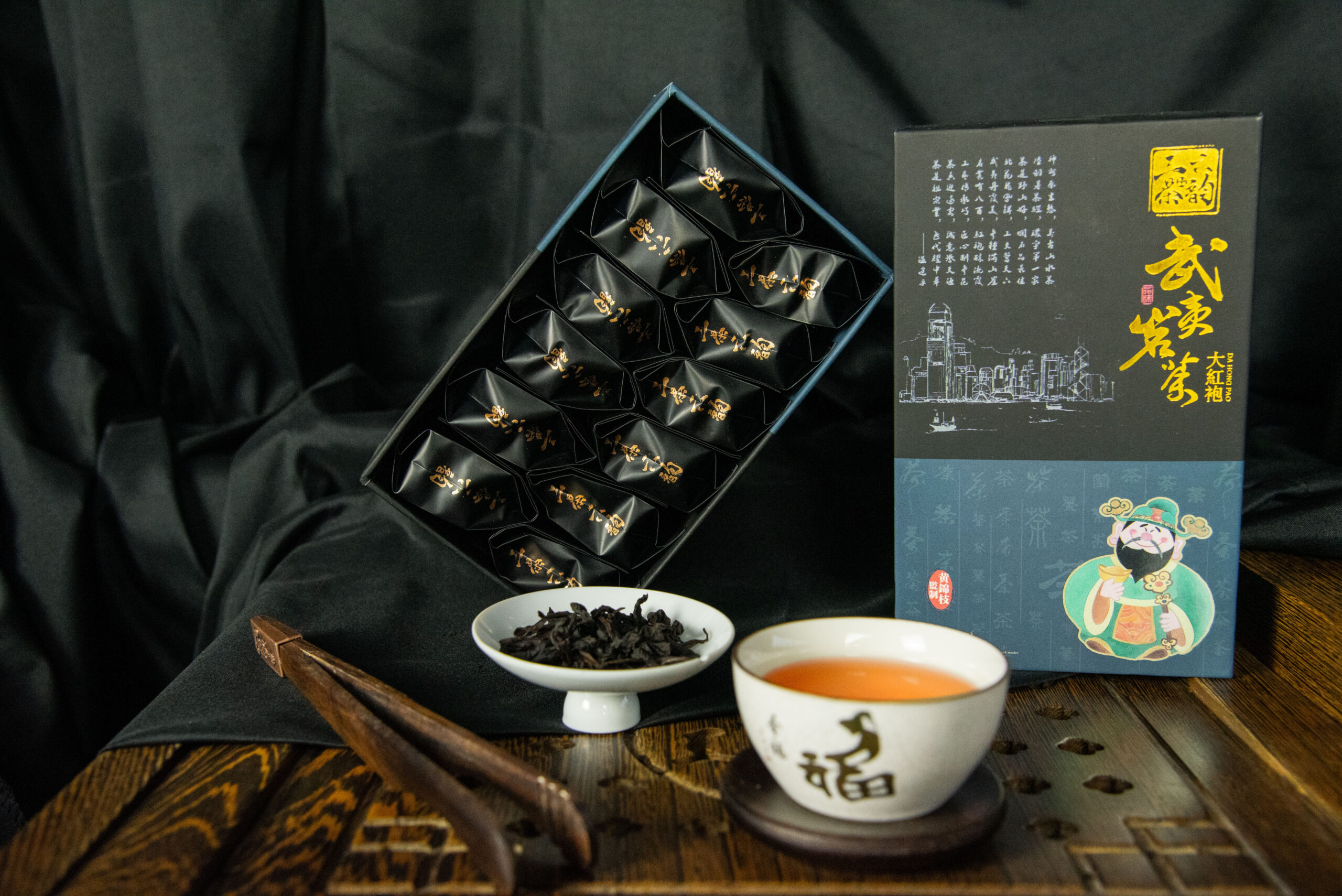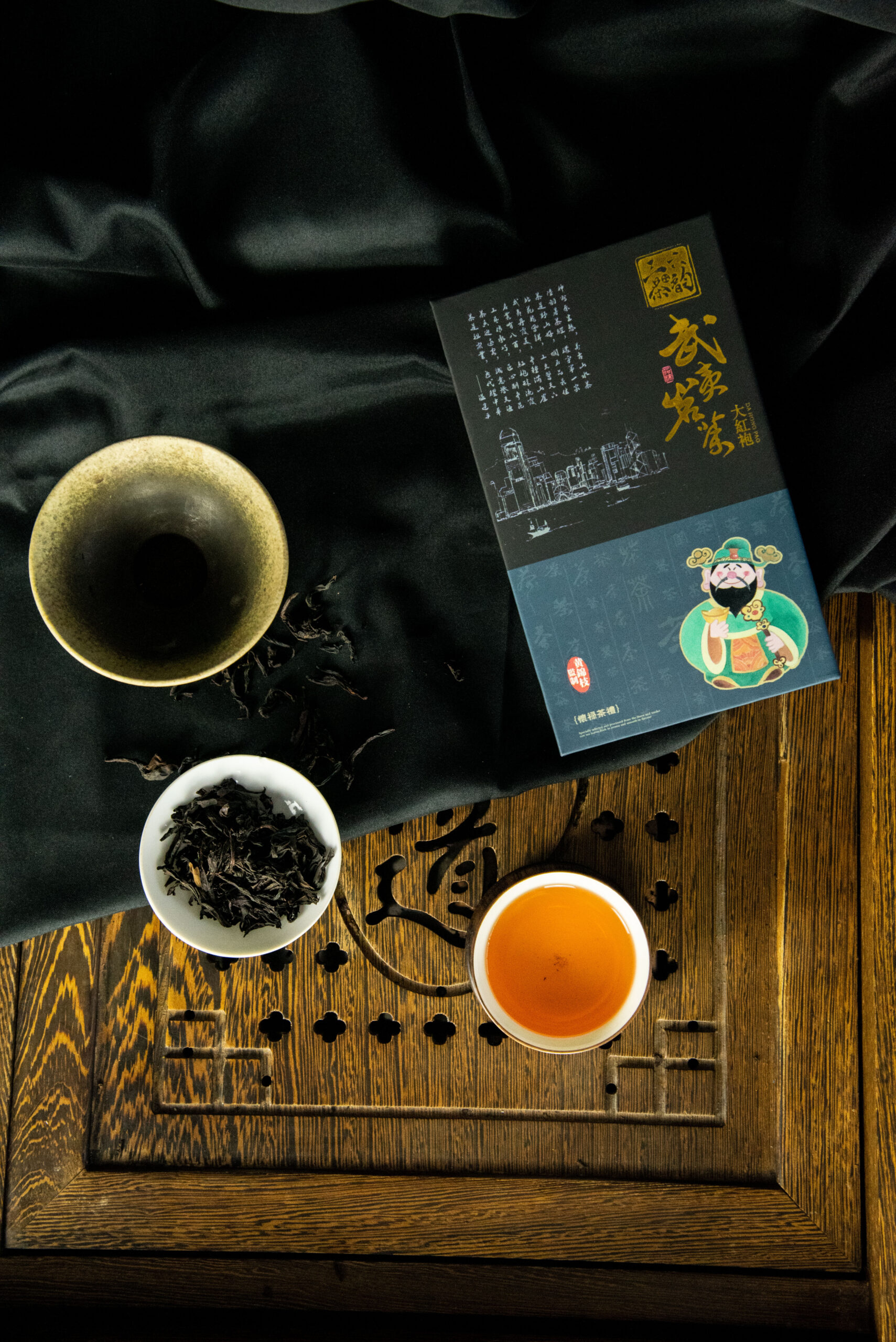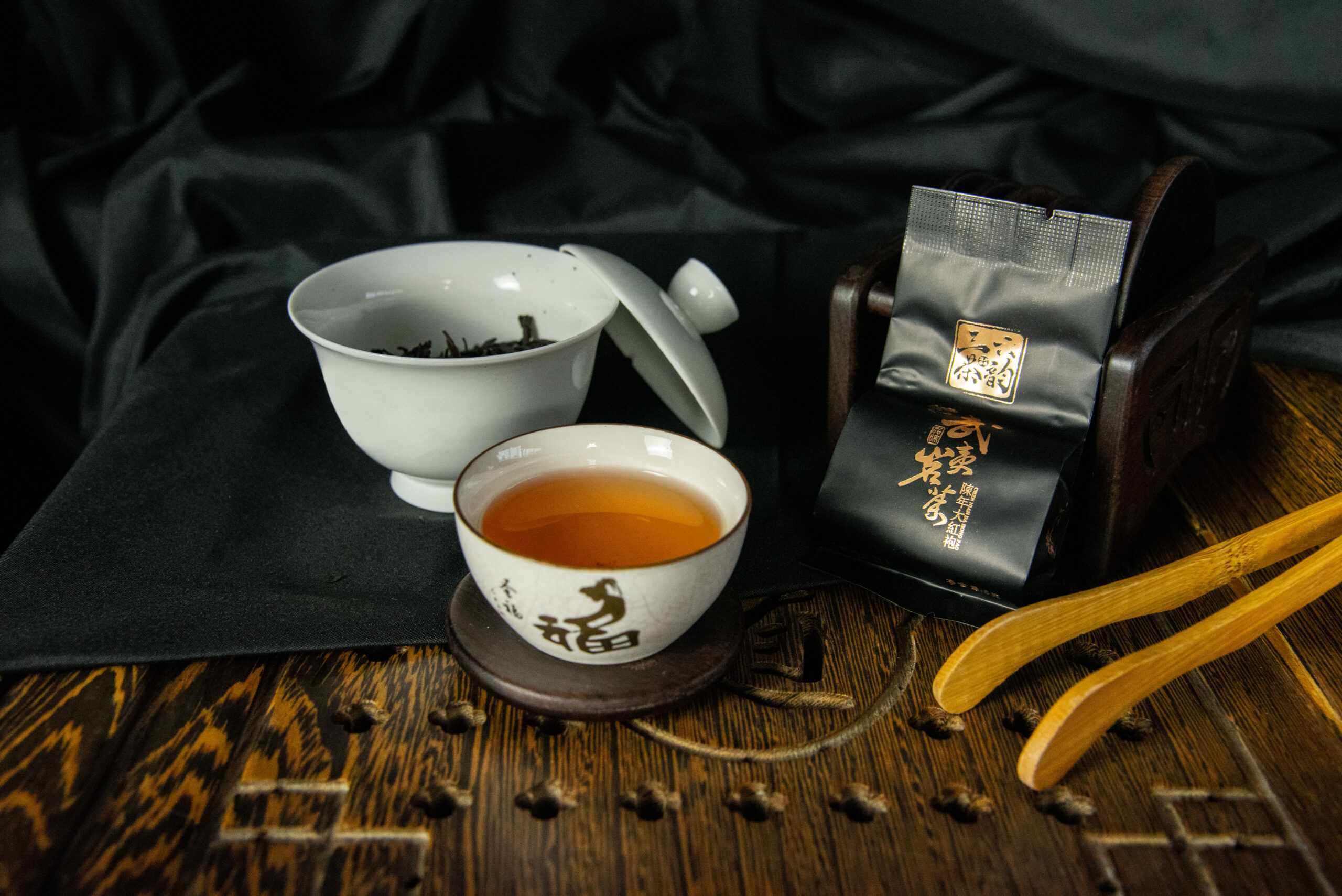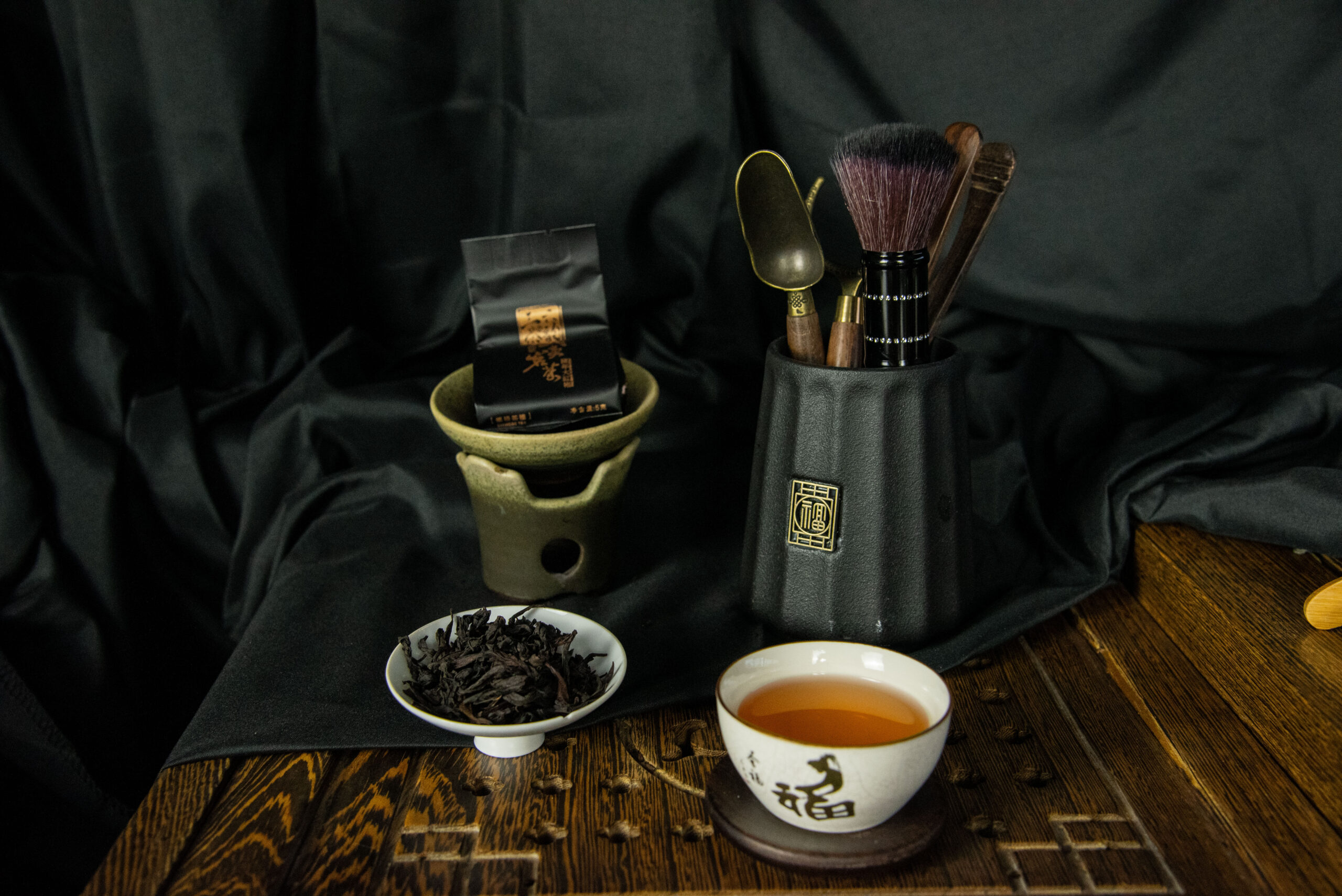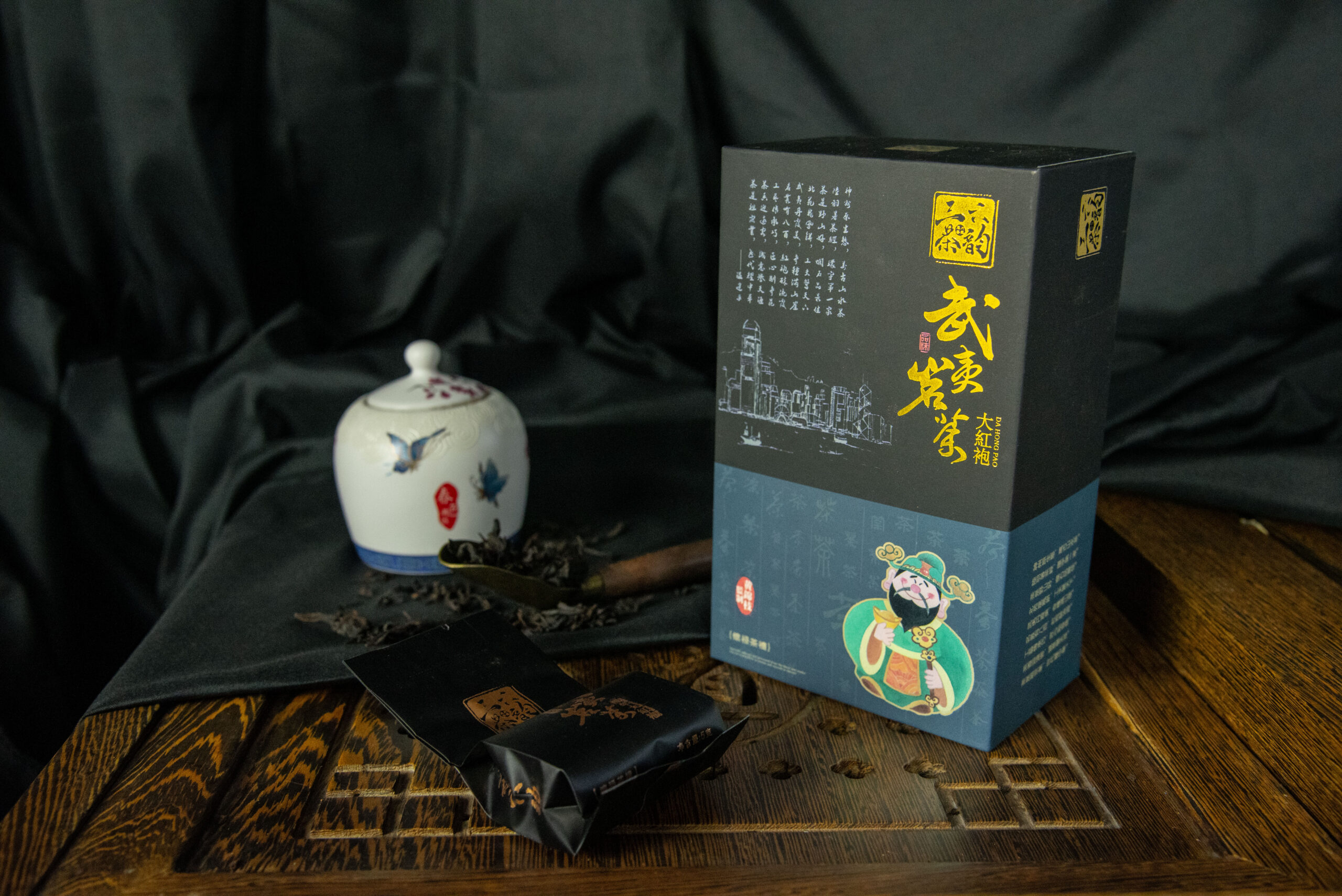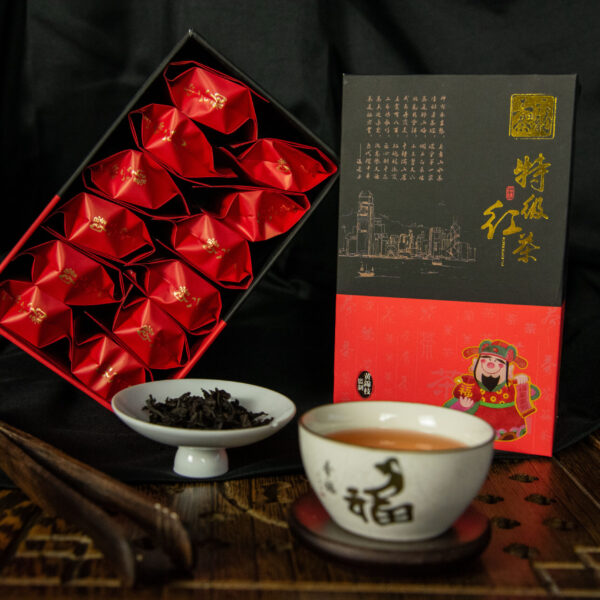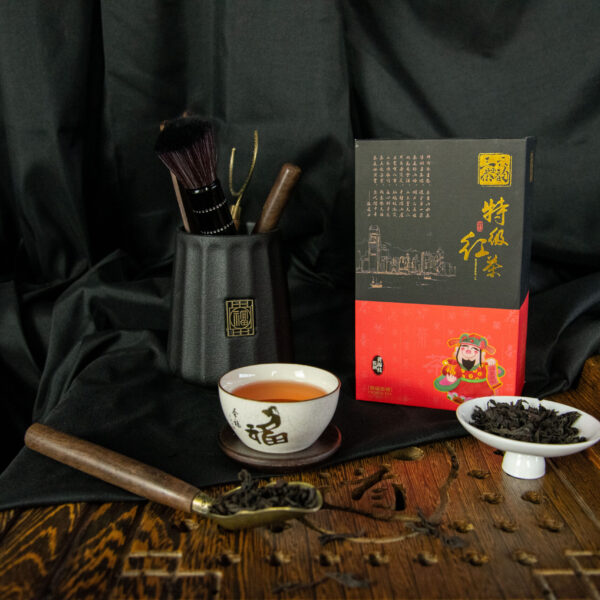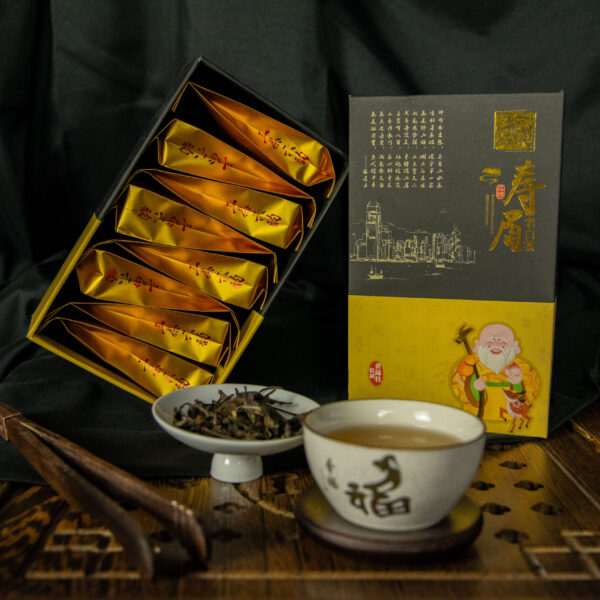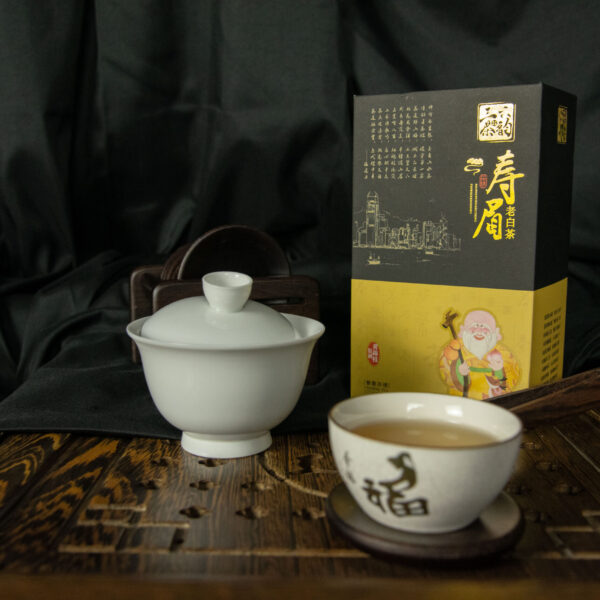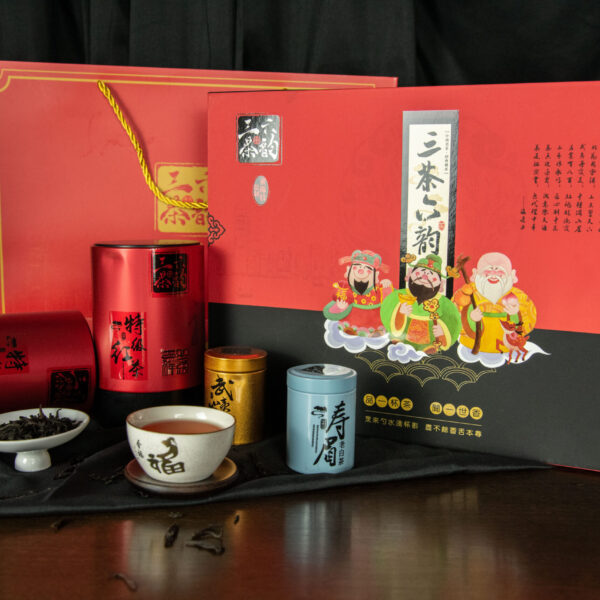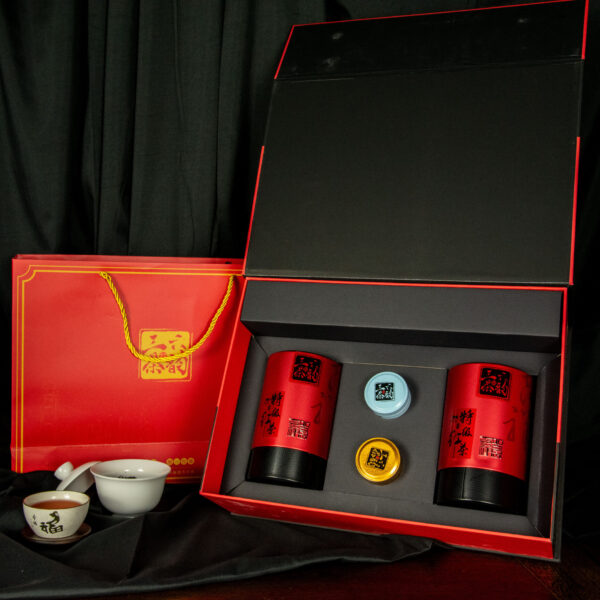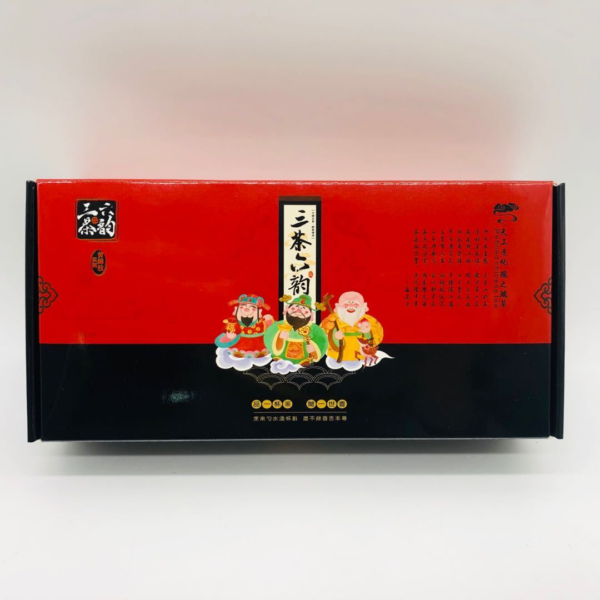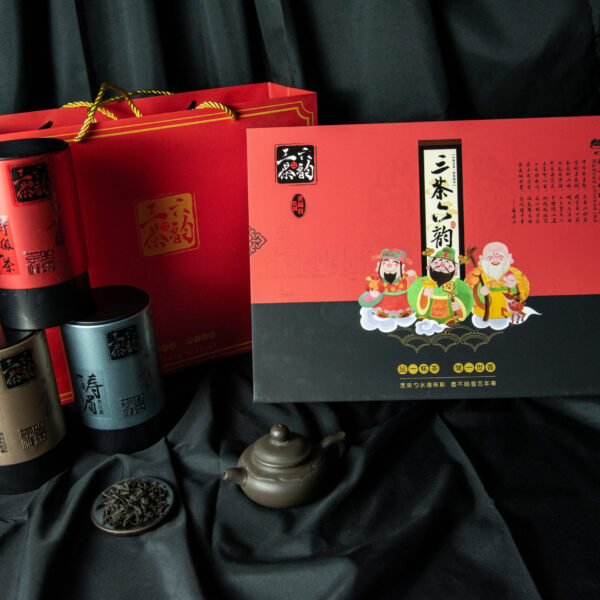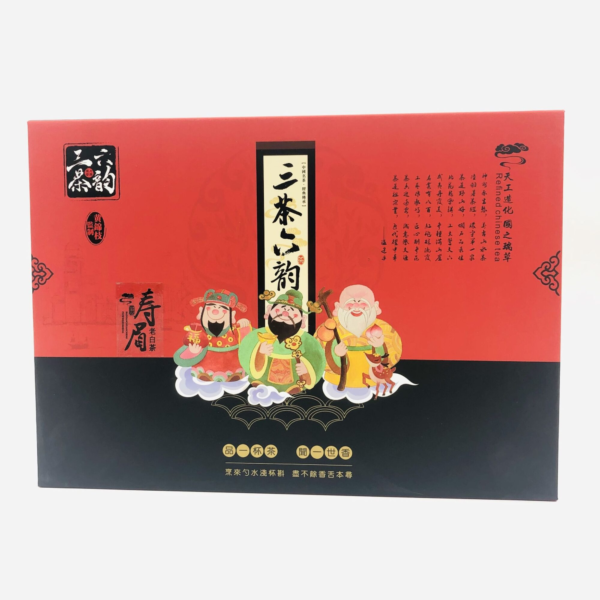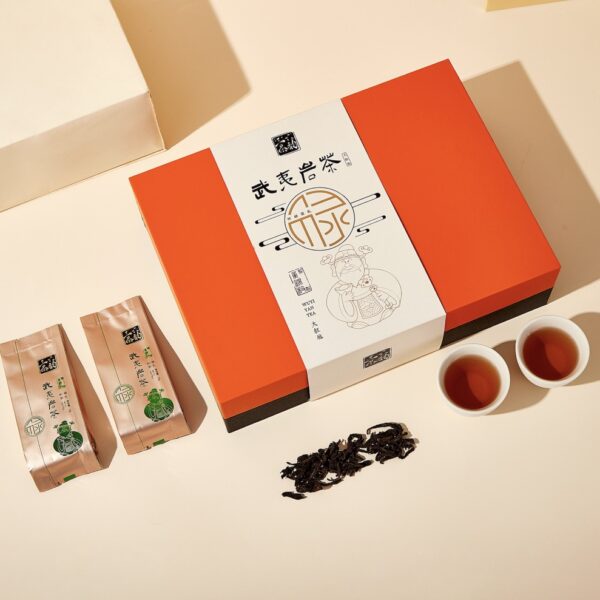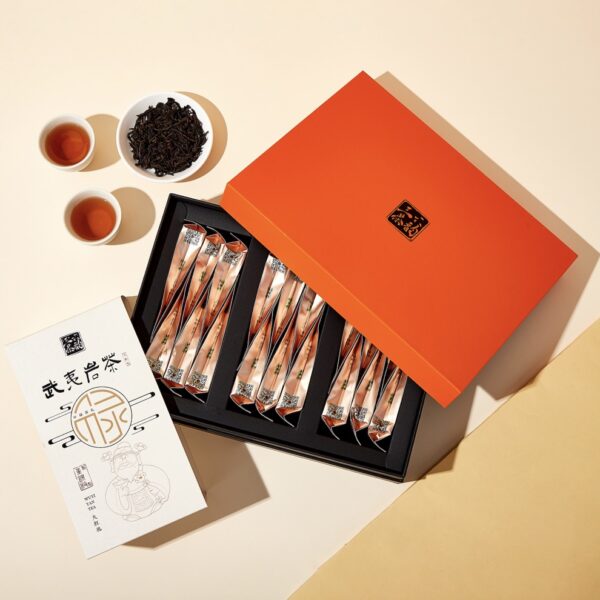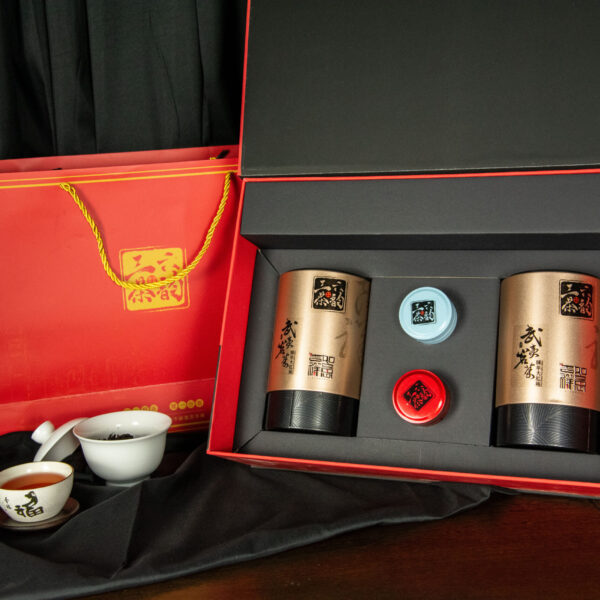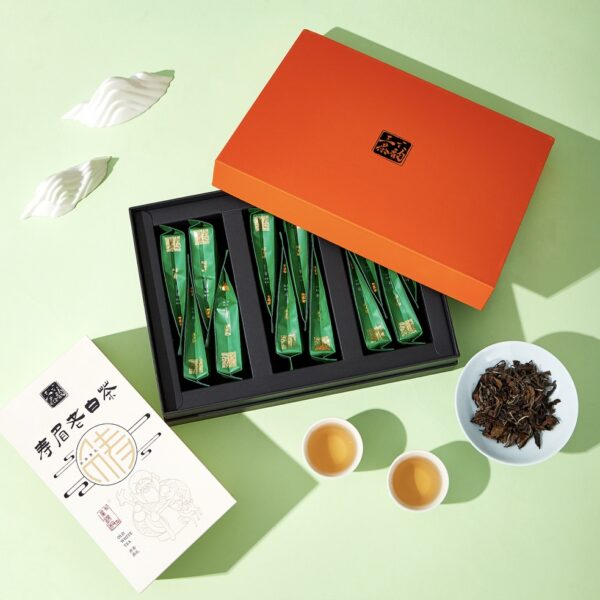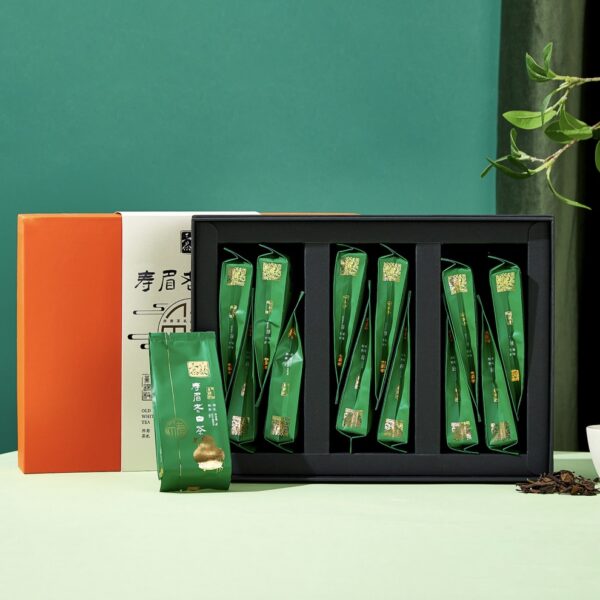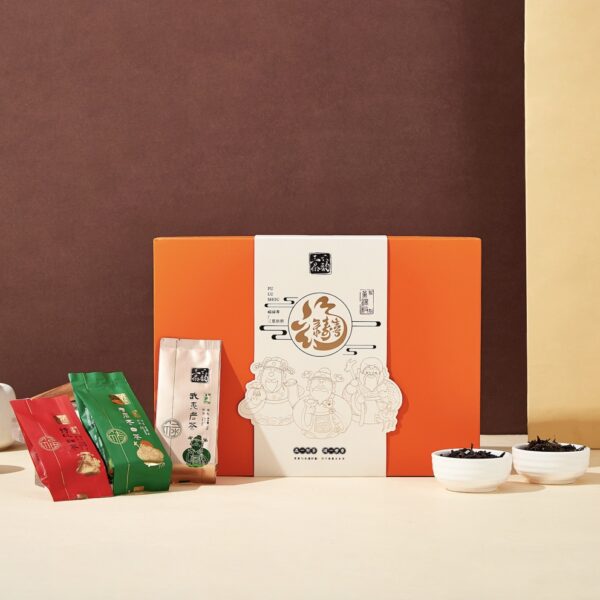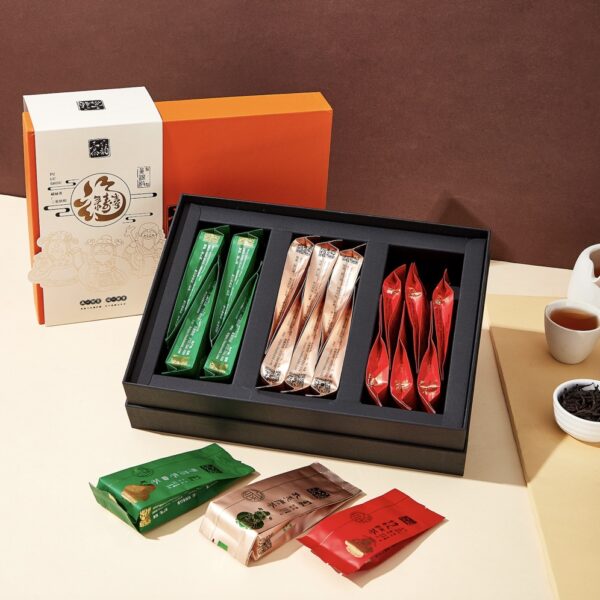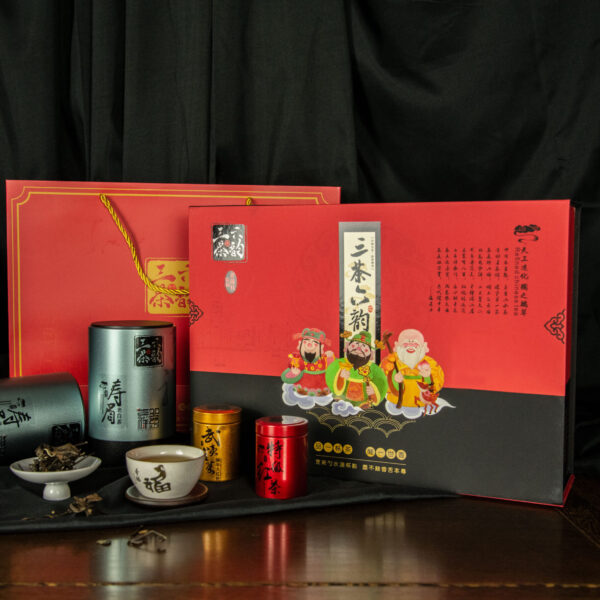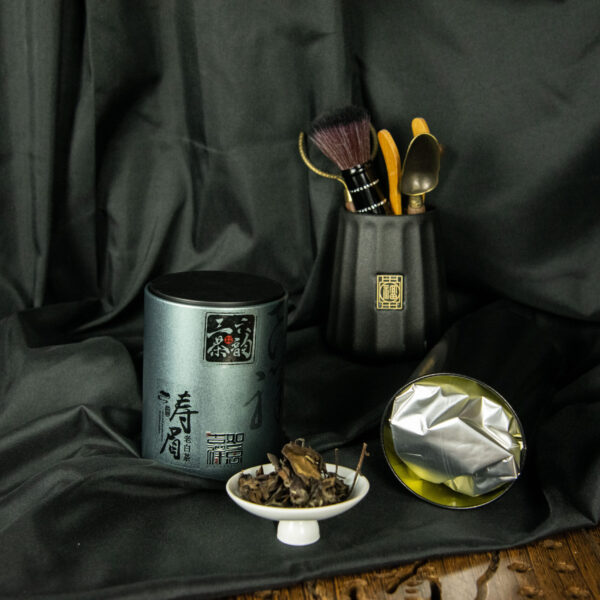- Description
Description
“Luk” is the god of wealth, symbolizing the blessing of heavenly officials. Dahongpao (Big Red Robe) is a special type of Chinese tea, mainly produced in Wuyi Mountain, Fujian, and is classified as oolong tea. Dahongpao is considered a famous tea because it has a rich orchid fragrance that is not only highly fragrant but also long-lasting, with a distinct “rock flavor.” Regular consumption of Dahongpao not only refreshes the mind, eliminates fatigue, promotes body fluids, relieves heat and prevents heat stroke, sterilizes inflammation, detoxifies and prevents disease, promotes digestion and eliminates greasiness, but also prevents cancer, lowers blood lipids, and counteracts aging.
Legend has it that the origin of Dahongpao dates back to 1385, in the 18th year of the Ming Dynasty’s Hongwu reign. A scholar named Ding Xiansu was on his way to the capital for the imperial examination, and he suddenly fell ill with severe abdominal pain when passing through Wuyi Mountain. Luckily, he met a monk from the Tianxin Yongle Temple who brewed tea for him from the tea leaves he kept, and the pain disappeared immediately. After Ding Xiansu became the top scholar in the examination, he went to thank the monk and asked about the origin of the tea leaves. He learned that the name “Dahongpao” came from the fact that the monk wrapped the tea tree three times with a large red robe he took off himself. The top scholar brought back the Dahongpao in a tin can.
After returning to the capital, the top scholar met the empress who was ill with no cure, and offered her the tin of tea leaves. After drinking it, the empress gradually recovered, and the emperor was delighted and awarded the top scholar a red robe. He was instructed to go to Jiu Long Ke (Dragon Nest) and wrap the robe around the tea tree as a tribute to the dragon’s grace. He was also instructed to send people to guard and collect all the tea leaves and not to keep any privately. From then on, Dahongpao became a tribute tea specially enjoyed by the royal family, and its reputation spread far and wide. According to legend, every year, officials sent by the court wear red robes and hang them on the tea trees of tributary tea, hence the name Dahongpao.
Dahongpao contains three beneficial components: tea polyphenols, tea polysaccharides, and tea amino acids, which have good effects on anti-cancer, lowering blood lipids, enhancing memory, and reducing blood pressure.
In today’s society, with high work pressure and an unbalanced diet, high blood pressure, high blood lipids, fatigue, and cancer have become common workplace by-products. “Luk” hopes to use high-quality Dahongpao as a medium to help tea drinkers achieve full spiritual and physical health by regularly drinking this tea, which can improve mental and physical well-being, thinking agility, and work efficiency. In this way, they can handle the ever-changing society with ease, and enjoy a prosperous and happy life.
Luk is another masterpiece by Mr. Wong, who once monopolized the Wuyi Rock Tea market in Hong Kong. Wuyi Rock Tea has a sweet and mellow flavor with a rich and fragrant aroma. After brewing, its fragrance and taste bring a comfortable and pleasant feeling. The tea’s aroma lingers in the mouth for a long time even after 7 to 8 brews, and it tastes sweet and refreshing.
The aged Dahongpao has an even more mellow taste, which brings a sense of tranquility and ease, and helps one to cope with the rapidly changing society and excel in the workplace. As the saying goes, “There are always few exquisite products,” and the rarity and excellence of Wuyi tea have always been loved by scholars, officials, and social elites.







